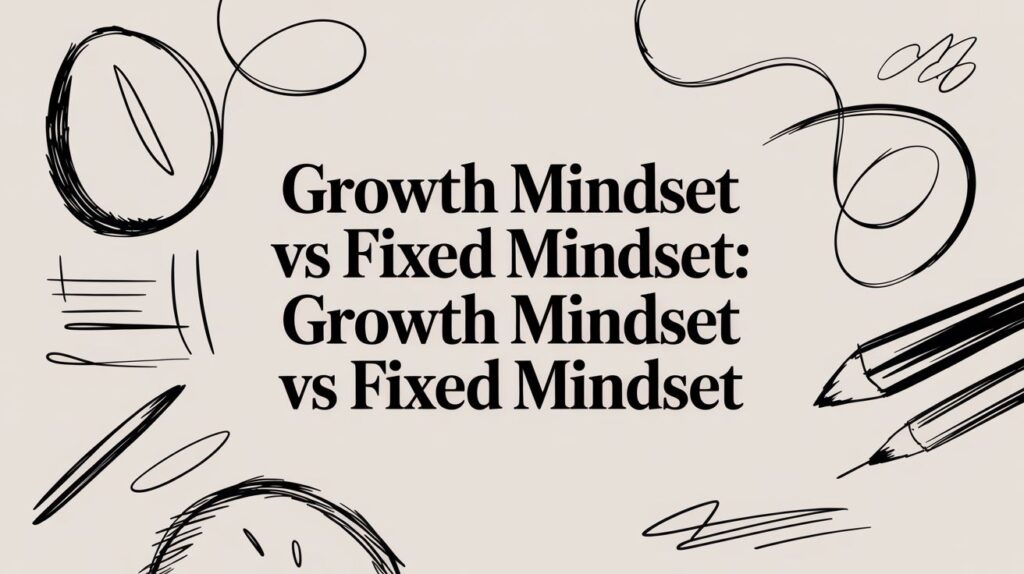Harnessing Mind Over Matter: Unlocking the Power of Mental Resilience in Everyday Life

Ever felt like your mind was working against you? Like when you’re trying to focus, but your brain’s like, “Nah, let’s think about everything else instead.” Well, what if you could flip the script and make your mind your biggest ally? That’s what ‘mind over matter’ is all about. It’s not just about ignoring pain or stress, but about using your mental strength to handle life’s ups and downs better. Let’s explore how this concept plays out in everyday life and why it’s more relevant now than ever.
Key Takeaways
- Mind over matter is about using mental strength to deal with life’s challenges.
- Neuroplasticity shows that our brains can change and adapt, influencing our physical state.
- Techniques like mindfulness and positive thinking can improve both mental and physical health.
- Mind over matter isn’t a cure-all but a tool to complement traditional treatments.
- Ethical considerations are important to avoid blaming individuals for their health issues.
The Science Behind Mind Over Matter
Understanding Neuroplasticity and Its Impact
Neuroplasticity is a fancy term for the brain’s ability to change and adapt. Think of it like your brain is a big, squishy ball of clay that keeps reshaping itself based on what you learn and experience. This ability is what allows us to form new habits, learn new skills, and recover from brain injuries. Neuroplasticity is the key to understanding how our thoughts can physically change our brains. It’s like your mind is a sculptor, molding your brain’s pathways over time. This adaptability is crucial for mental resilience, helping us bounce back from setbacks and adapt to new challenges.
Exploring Psychoneuroimmunology
Now, here’s a mouthful: psychoneuroimmunology. It’s a field that studies how our thoughts and emotions interact with our immune system. Imagine your immune system as a defense team, and your thoughts as the coach. If you’re stressed or anxious, your immune system might not perform at its best. But if you’re feeling positive and relaxed, your immune system gets a boost. This connection shows how closely our mental state is linked to our physical health. It’s like having a built-in health coach in your head, guiding your body’s defenses.
The Placebo Effect: Belief as a Healing Tool
The placebo effect is a wild phenomenon where just believing a treatment works can actually make it work. It’s like magic, but with science! People often experience real changes in their symptoms, even when the treatment has no active ingredients. This effect highlights the power of belief and expectation in healing. Our minds can trigger real physical changes, showing just how powerful our thoughts can be. It’s a testament to the idea that sometimes, believing is seeing.
Mind Over Matter in Psychological Practices
Cognitive Behavioral Therapy and Mental Resilience
Cognitive Behavioral Therapy (CBT) is a popular method in psychology that helps people change negative thought patterns. By doing this, it not only improves mental health but also has physical benefits. It’s like giving your mind a makeover and watching your body follow suit. CBT is all about understanding how our thoughts affect our feelings and actions. By changing the way we think, we can change the way we feel and act, which can lead to better overall health.
Mindfulness-Based Interventions for Stress Reduction
Mindfulness-based interventions have gained popularity as a means to reduce stress. These practices teach us to focus on the present moment without judgment. Simple, right? But the effects can be profound. Regular mindfulness practice has been linked to reduced stress and anxiety, and even improved immune function. It’s like a spa day for your mind, with benefits that ripple out to your entire being.
Positive Psychology: Cultivating Optimism
Positive psychology focuses on what makes life worth living. It’s not just about treating mental illness; it’s about cultivating positive emotions and strengths. The power of optimism is more than just putting on a happy face. Research shows that a positive outlook can have real effects on physical health, like boosting heart health and increasing longevity. It’s like your sunny disposition is a secret superhero, fighting off illness and promoting vitality.
Embracing these psychological practices can transform not only how we think but also how we live, offering a pathway to greater resilience and well-being.
Practical Applications of Mind Over Matter
Pain Management Through Mental Techniques
Pain is a tricky beast. It’s there, and we feel it, but what if we could tweak how we perceive it? That’s where mental techniques come in. Practices like meditation, visualization, and cognitive restructuring help people manage chronic pain. It’s not about pretending the pain isn’t there but changing how we relate to it. Imagine having a volume knob for your pain—turning it down when it gets too loud. That’s the power of these techniques.
Stress Reduction and Relaxation Strategies
Stress is everywhere, and let’s be honest, it can really mess with our bodies. But our minds can help us fight back. Techniques such as regular meditation, deep breathing, and positive self-talk can help keep stress in check. Think of it as giving your mind a calming pill that your body will thank you for. These strategies not only help manage stress but also fend off its nasty health effects.
Enhancing Athletic Performance with Visualization
Athletes have been tapping into the mind’s power for ages to boost their game. Sports psychology uses mind over matter principles to help athletes overcome mental hurdles, sharpen their focus, and improve performance. Visualization is a key tool here, letting athletes mentally practice their skills as if they were on the field. It’s like having a secret training session in your head without breaking a sweat.
The mind is a powerful ally in both healing and performance. By learning to harness its potential, we can transform how we experience and interact with the world around us.
Developing Mental Resilience and Grit
Building a Growth-Oriented Mindset
Building a growth-oriented mindset is like planting a garden in your mind. You start with a few seeds of curiosity and watch as they blossom into a forest of possibilities. The idea is simple but powerful: believe that your abilities can be developed through dedication and hard work. This mindset creates a love for learning and resilience that is essential for great accomplishments. To cultivate this mindset, try these steps:
- Embrace challenges: See them as opportunities to learn, not obstacles.
- Persist despite setbacks: Understand that failure is part of the journey to success.
- Learn from criticism: Use feedback as a tool for growth.
Techniques for Emotional Flexibility
Emotional flexibility is like having a mental yoga session. It’s about being able to stretch your emotions and adapt to new situations without snapping. This skill helps in managing stress and bouncing back from adversity. Here are some techniques to improve emotional flexibility:
- Mindfulness practice: Stay present and aware of your emotions without judgment.
- Journaling: Write down your feelings to better understand and process them.
- Cognitive restructuring: Challenge and change negative thought patterns.
Overcoming Setbacks with Mental Strength
Setbacks are like unexpected detours on a road trip. They can be frustrating, but they also offer new experiences and learning opportunities. Developing mental strength is about building mental toughness to navigate these detours with confidence. Here’s how you can boost your mental strength:
- Set realistic goals: Break down big challenges into smaller, manageable tasks.
- Stay optimistic: Focus on what you can control and maintain a positive outlook.
- Build a support network: Surround yourself with people who encourage and motivate you.
Remember, resilience isn’t about bouncing back to where you started. It’s about bouncing forward to a place you’ve never been before. Each challenge you face is a step towards a stronger, more resilient you.
Ethical Considerations in Mind Over Matter

Balancing Mind and Medical Treatments
When it comes to using mental strength to boost health, it’s super important to strike a balance with medical treatments. Imagine trying to fix a car with just a screwdriver when you really need a whole toolbox. While mind-over-matter techniques are powerful, they shouldn’t replace medical care. They can be used alongside traditional treatments to create a well-rounded approach to health. It’s about finding that sweet spot where mind and medicine work together like a well-oiled machine.
Avoiding Victim-Blaming in Health Contexts
Now, here’s a tricky part. If we focus too much on the mind’s role in health, it might seem like we’re blaming people for their illnesses. That’s not cool, especially when dealing with serious or chronic conditions. It’s important to remember that while the mind can influence health, it’s not the only player on the field. We shouldn’t imply that someone isn’t trying hard enough to get better. Health is complex, and there are many factors at play.
Addressing Complex Mental Health Issues
Mind-over-matter techniques can be super helpful, but they’re not a magic fix for every mental health challenge. Some issues are complex and need more than just mental exercises. They might require medication, therapy, or other treatments. Think of it like trying to assemble a puzzle with missing pieces; sometimes you need more than just a few tricks up your sleeve to see the whole picture.
In the end, harnessing mental strength can significantly impact personal growth, as our thoughts, beliefs, and mental state shape our experiences and outcomes in life. But it’s key to use these techniques responsibly and in tandem with other treatments. This way, we can truly unlock the potential of our minds without oversimplifying the intricate dance of health and wellness.
- Mind and Medicine: Use mental techniques alongside traditional treatments
- Complexity of Health: Recognize the multifaceted nature of health
- Responsible Use: Apply mind-over-matter methods carefully
By keeping these ethical considerations in mind, we can better navigate the powerful world of mind over matter and use it to our advantage without stepping on any toes.
Future Directions in Mind Over Matter Psychology

Advancements in Neuroscience and Technology
The future of mind over matter psychology is buzzing with possibilities, thanks to the rapid growth in neuroscience and technology. New tools and techniques are emerging, offering deeper insights into how our brains work and how they connect with our bodies. Imagine AI-driven programs that help you train your mind, or biofeedback gadgets that let you see your mental state in real-time. It’s like having a personal coach for your brain! These innovations could make it easier for people to tap into their mental power and improve their lives.
Integrating Mind Over Matter in Daily Life
Bringing mind over matter concepts into everyday life doesn’t have to be daunting. It’s about small, consistent steps that build mental resilience over time. Here’s how you might start:
- Practice mindfulness or meditation daily, even if just for a few minutes.
- Use positive affirmations to shift your mindset.
- Engage in regular physical activity to boost mental clarity.
These practices help bridge the gap between theory and real-world application, making mental resilience a part of your daily routine.
Potential Challenges and Limitations
While the future looks bright, there are hurdles to overcome. Not all mind over matter techniques work for everyone, and sometimes they can be misused. Ethical questions arise when we consider how far we should go in altering our mental states. The balance between mental and medical treatments is delicate, and current research shows that cultural differences can also play a role in how these practices are perceived and implemented. It’s essential to tread carefully, ensuring that these powerful tools are used responsibly.
Conclusion
So, here we are at the end of our little journey into the world of mind over matter. It’s been quite a ride, hasn’t it? We’ve peeked into how our thoughts can shape our reality, and maybe even our health. It’s not about ignoring the tough stuff or pretending everything’s peachy. It’s about realizing that our minds can be pretty powerful allies when life gets tricky. As you go about your day, remember to give yourself a break, stay curious, and keep an open mind. Who knows? You might just surprise yourself with what you can achieve when you put your mind to it. So, next time you’re up against a challenge, take a deep breath, and remember: you’ve got this.
Frequently Asked Questions
What does ‘mind over matter’ mean?
‘Mind over matter’ means using your thoughts and beliefs to influence your physical and emotional well-being.
How can I use my mind to manage pain?
You can try techniques like meditation and visualization to change how you perceive pain, making it feel less intense.
What is neuroplasticity?
Neuroplasticity is the brain’s ability to change and adapt based on experiences and thoughts.
Can positive thinking really improve health?
Yes, positive thinking can boost your immune system and improve overall health by reducing stress.
What is the placebo effect?
The placebo effect is when people experience real improvements in health after receiving a treatment with no active ingredients, just because they believe it will work.
Are there ethical concerns with mind over matter techniques?
Yes, it’s important to balance these techniques with medical treatments and avoid blaming people for their illnesses if mind over matter doesn’t work for them.








Responses